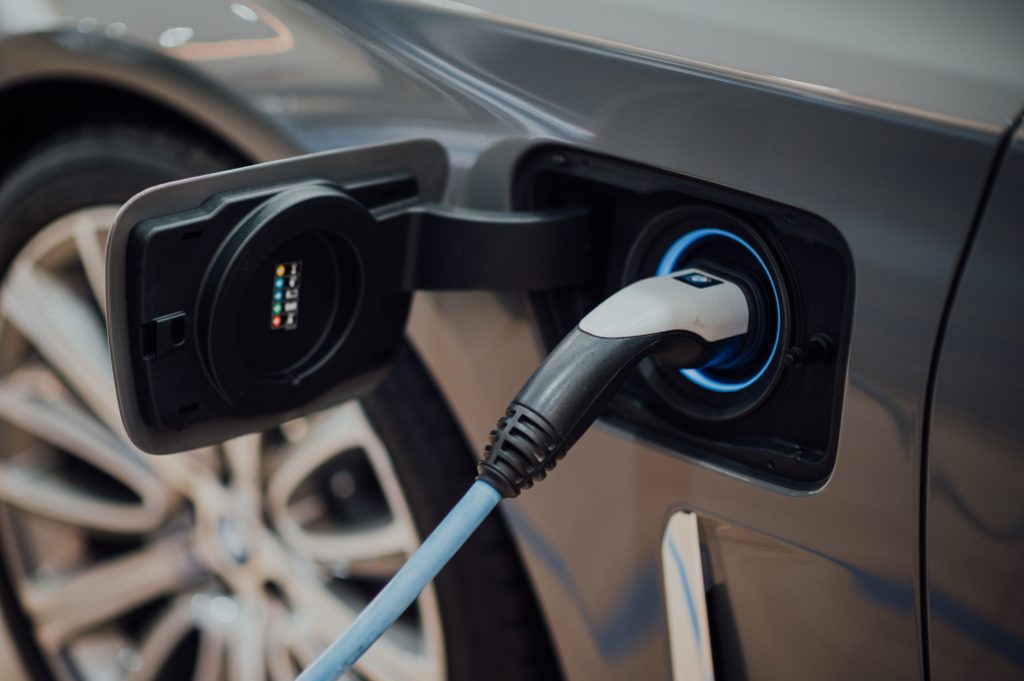My partner and I are nearing the end of our lease on our current car, so we’re starting to think about what we’d like to invest in next. We used to have a hybrid car, which was great. We felt good about our decision and how it affected the planet and saved a lot of money on gas. Recently we’ve been talking about taking it a step further and investing a little bit more money to purchase an electric car. Naturally, I wanted to do some research first, but what I found out surprised me.
It turns out that electric cars are not as green as we think they are due to the process involved in making the batteries. The batteries in electric vehicles and most personal devices contain lithium. The problem is how lithium is sourced. This metal has to be mined and is extremely water-intensive to do so. It requires approximately 500,000 gallons of water per metric ton of lithium. Furthermore, lithium is concentrated in only a few countries. Over half of the world’s supply is buried in Argentina, Bolivia, and Chile.
In order to extract lithium, miners will drill into salt flats, pump a mineral-rich brine to the surface. This brine is then evaporated several times over many months until the lithium can be separated. The biggest problem with this is that these countries have some of the driest climates. In Chile, the mined regions had 65% of their water used up by the miners. Local people, farmers, and herders had the majority of their water taken away by the mining operations creating a water shortage in those regions. This has forced many local communities to abandon ancestral settlements.
The waste from the process has also been found to be toxic. In 2016, there was a leak from the Ganzizhou Rongda Lithium mine that spilled into the Liqi River. Dead fish were found in the river, and cow and yak carcasses were found floating upstream that drank the contaminated water. This causes an even bigger problem with the disposal of lithium batteries that are no longer useful. Producers all over the world are very secretive on how and what exactly goes into their batteries in order to remain competitive. However, this means that it is extremely difficult to recycle the batteries. Only five percent of all spent batteries are recycled in the U.S. This means that most of them end up in landfills where the toxic chemicals leak, which can contaminate the water and soil. Unfortunately, e-waste has been illegally shipped to developing nations for a long time now. With more and more e-waste, this is becoming a significantly worse problem. Not only are disadvantaged communities disproportionately affected by the environmental implications of mining lithium, but then they face further risks when first-world countries illegally ship e-waste that then contaminates their water, air, and soil.
The lithium-ion battery industry is expected to only keep growing. Currently, the annual production is estimated to grow from 100-gigawatt hours in 2017 to 800-gigawatt hours in 2027. This means that more disadvantaged communities worldwide will have their water stolen from them and have to undergo the destruction of their homes due to toxic waste. This is especially troubling since the Biden administration is poised to pump billions of dollars into updating our infrastructure, with a focus on increasing electric vehicles. While more people drive electric cars thinking that they’re helping the planet, poisonous chemicals from the older ones will be seeping into the earth.
Although electric vehicles might be a better alternative than gas-powered cars, they’re not perfect. We need to continue improving technology. The UN recommends investing in better recycling methods, working on more sustainable mining practices, and increased oversight of the refinement process to reduce waste. However, I also hope we find an alternative to lithium altogether. With this knowledge in mind, I wonder if the best option would be for us to be a used electric car and ensure recycling of the battery once it is no longer usable. What do you think?
Get more like this—Sign up for our daily inspirational newsletter for exclusive content!
___
Photo: CHUTTERSNAP on Unsplash





